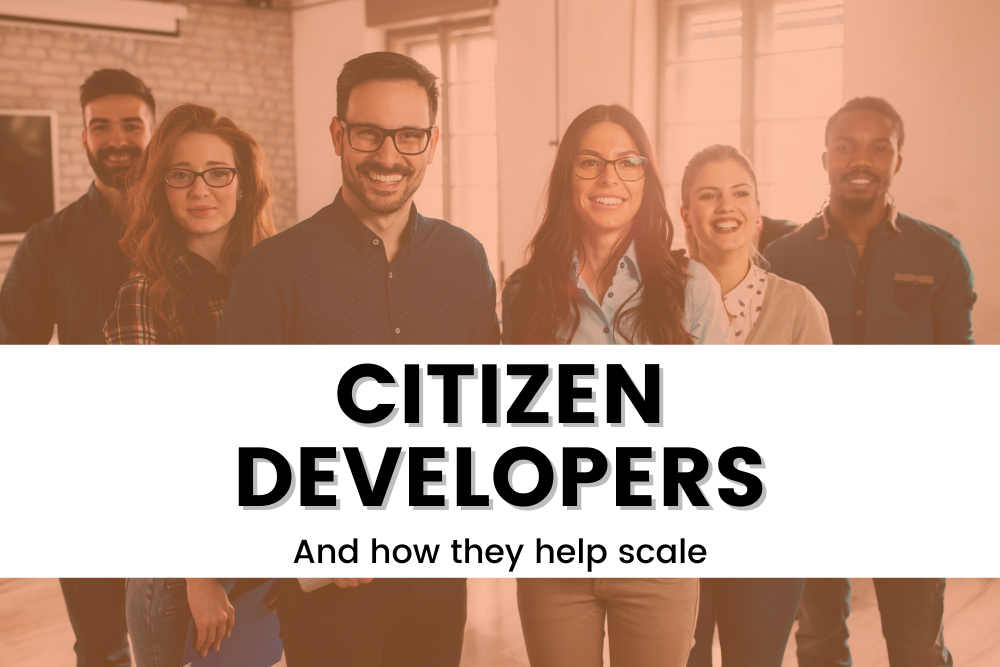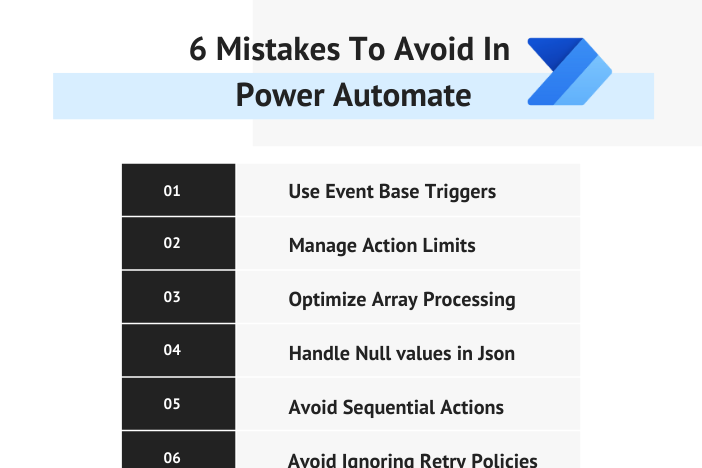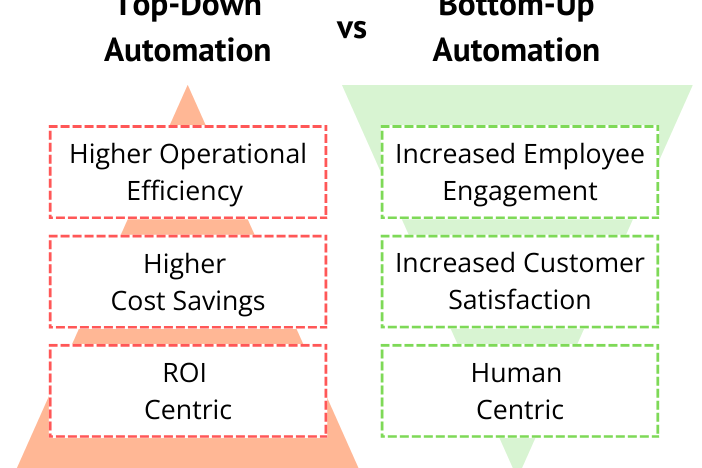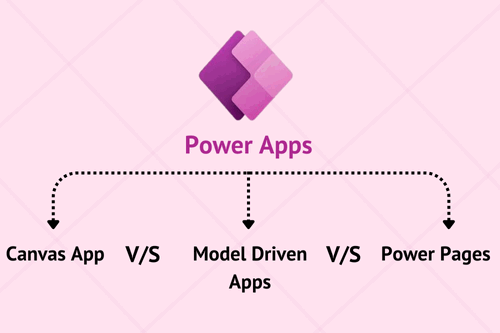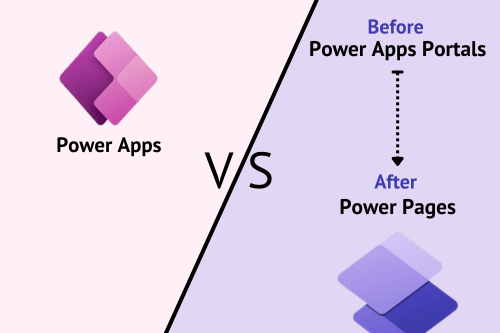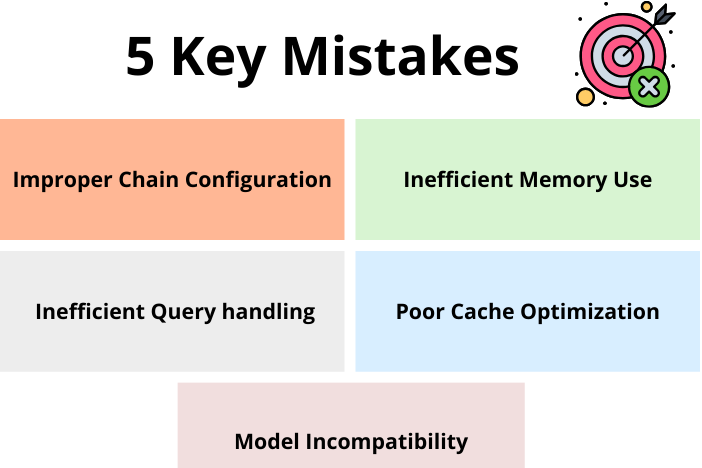Automating From the Bottom Up
Citizen developers play a vital role in helping you scale your RPA strategy. The idea of knowledge workers being the force behind robotic process automation is becoming increasingly popular as more and more companies pursue digital transformation and intelligent automation. This grassroots approach is a great way to empower your knowledge workers to learn a new skill and offload their boring, rule-based tasks on a software robot. But before we go any further, let’s learn more about what exactly a citizen developer is. Then, we’ll find out why this RPA strategy is conducive to scaling. Let’s begin!
What are Citizen Developers?
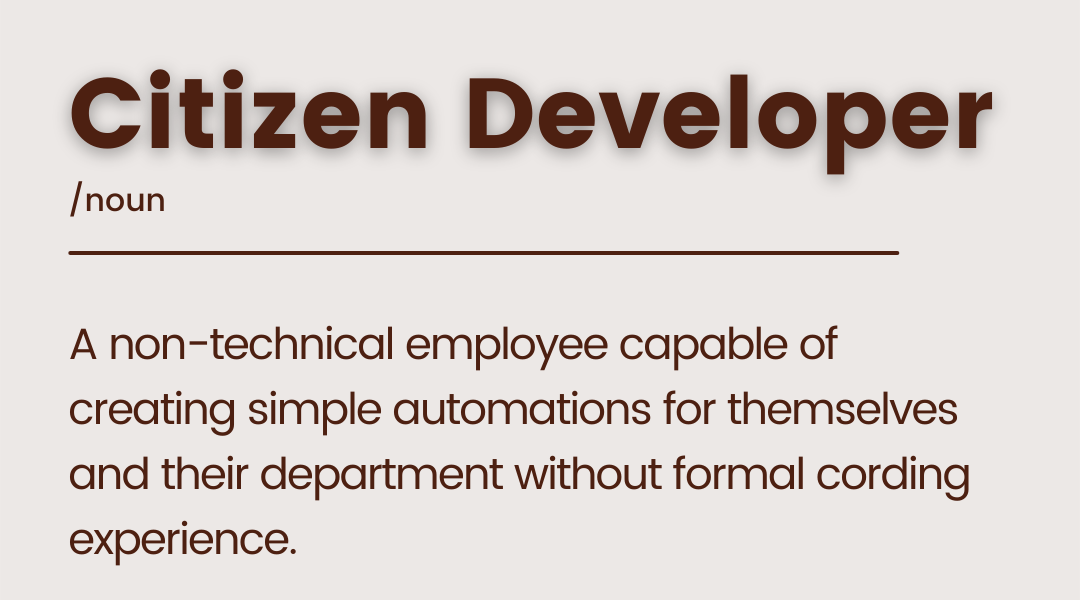
Citizen developers are non-technical employees that are capable of creating simple automation for themselves and their department without formal cording experience. These semi-tech-savvy individuals use their critical thinking skills to learn the basics of automation to drag-and-drop application components and connect them together to generate a new automated workflow. UiPath reports 86% of employees say they want more opportunities to learn new skills, and 83% wish their company gave them a way to upgrade current skills. Citizen developers are positioned somewhere between the employees that use software bots but do not have the skills to build them, and your technically-trained automation developers/Center of Excellence team. The goal behind citizen development is to give the power of automation to the people who best know the day-to-day processes.

How Citizen Developers Help Scale
Like we mentioned above, citizen developers are essential to your organization’s scaling potential. But how? By crowdsourcing your RPA strategy to your employees, you’re able to scale faster than with a top-down automation strategy for three main reasons:
1. There are more automation possibilities beyond just company-wide software bots.
Taking a top-down RPA approach will help improve your large-scale processes, but there are still dozens—even hundreds—of other processes on the individual level that could help achieve greater accuracy, higher employee satisfaction, and rapid ROI.
2. Your CoE won’t have capacity for every automation request
Your Center of Excellence team will be absorbed with building and maintaining organizational-level process automations—they won’t have time to satisfy or even consider RPA requests from knowledge workers.
3. Individual RPA workflows will empower widened adoption of automation
Implementing RPA can be a real shock to your organization, so there is a possibility your employees will resist or even reject the change. If you empower your knowledge workers to create their own automations to improve their jobs, they’ll be more inclined to accept automation into their professional lives.
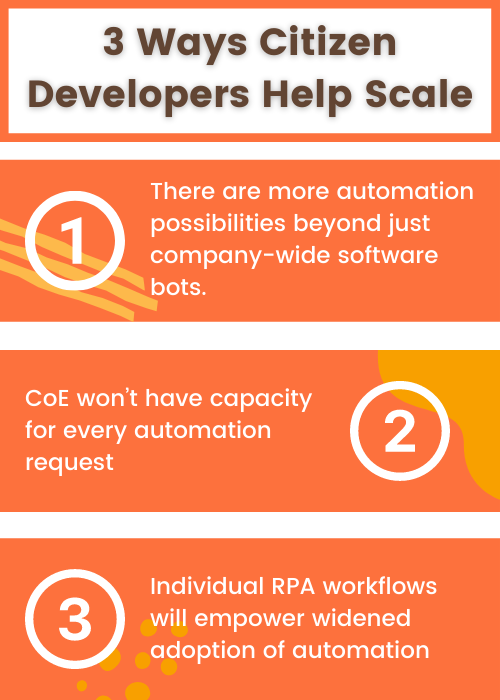
Citizen Developers + CoE = Digital Transformation
Beginning your robotic process automation journey with citizen development is a safe bet because it is low risk, can produce positive results quickly, and helps warm the employees up to the idea of automation. But your RPA strategy should transcend simply low-code/no-code tools. Combining citizen development with a Center of Excellence offers the perfect combination of top-down and bottom-up RPA adoption strategies; this is sometimes called a “sandwich” approach. Typically, organizations will launch small robots which will provide value over time as more robots are created and start the large implementation in parallel. So, while the citizen developers work at the individual level and the CoE team tackles the organizational level, the entire enterprise can achieve their goal of full-scale automation.
Start Empowering Citizen Developers Today
Citizens developers are a powerful tool to generate automated workflows throughout your company. Empowering your non-technical knowledge workers to implement RPA into their own processes will add an interesting challenge to their jobs and automate the boring, repetitive tasks they were previously completing. Citizen development pairs well with Center of Excellence RPA adoption strategy, and they can be carried out simultaneously to achieve full-scale digital transformation. In our experience, teaming up with third-party RPA technology experts to develop your Center of Excellence, or even advise the citizen development initiative, increase the chances of your digital transformation being successful not only in the short-term, but long term, as well.
Sunflower Lab has multiple locations to better serve our clients. Robotic process automation services Ohio, robotic process automation services New Jersey, and robotic process automation services New York all designed specifically to accommodate the needs in each unique market. For more information and resources regarding robotic process automation services, please reach out to our RPA Experts.
Get a FREE quote on your project today!
Your idea is 100% protected by our Non-Disclosure Agreement
You might also like
Stay ahead in tech with Sunflower Lab’s curated blogs, sorted by technology type. From AI to Digital Products, explore cutting-edge developments in our insightful, categorized collection. Dive in and stay informed about the ever-evolving digital landscape with Sunflower Lab.


